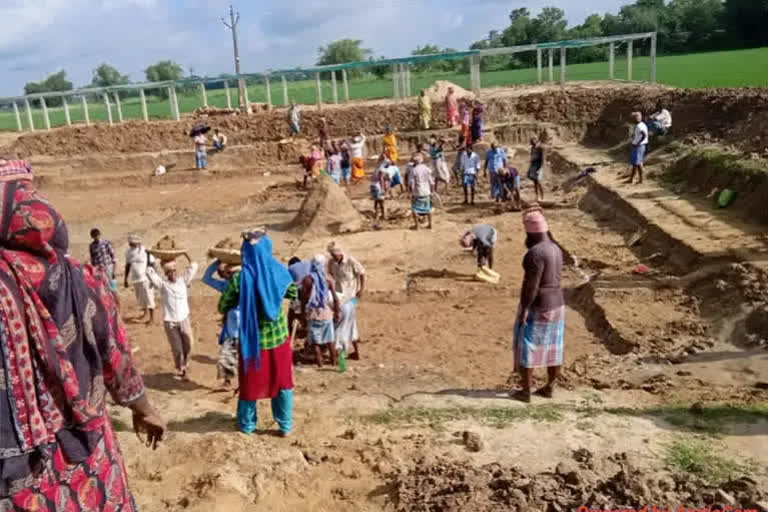New Delhi:A group of activists has flagged an "acute shortage" of funds under the rural employment guarantee programme MGNREGA despite a pandemic-induced surge in demand for work, and said almost 90 per cent of the allocated budget has been used up with five months remaining of the financial year.
The Rural Development Ministry on Saturday said the government is committed to release funds for wage and material payments for proper implementation of the programme and added that whenever additional fund is required, the Ministry of Finance is requested to provide it. Underlining that the Centre's flagship rural employment guarantee programme is a lifeline for millions of rural poor, especially in times of the COVID-19 pandemic, the People's Action for Employment Guarantee (PAEG) in a statement on Friday said the total budget for it in 2021-22 is 34 per cent less than that of the previous year.
PAEG is a group of the activists who were earlier members of the Central Employment Guarantee Council, a statutory body under the Mahatma Gandhi National Rural Employment Guarantee Act (MGNREGA). In the Union Budget presented earlier this year, the government allocated Rs 73,000 crore to the scheme for financial year 2021-22. It was 34 per cent less than the 2020-21 revised estimate of Rs 1.11 lakh crore.
Also Read:Reverse trend as senior citizens in Bengal attracted towards MGNREGA
In the previous financial year, the Centre had revised the allocation to Rs 1.11 lakh crore from an initial allocation of Rs 61,500 crore. PAEG working group member Nikhil Dey said the COVID-19 pandemic as well as the resultant lockdowns have had an unprecedented impact on workers across the country. "As a result during the first wave in 2020, millions of rural poor turned to MGNREGA in historically high numbers since it was the only source of a basic income security. A total of 7.75 crore households were provided work in the financial year 2020-21," Dey said.
However, the Centre in this fiscal reduced the fund allocation to MGNREGA despite the evident importance of it during the first wave and the devastating economic impact of the second wave. Sharing the details based on data from the NREGA Management Information System (MIS), Dey said, "Almost 90 per cent of the allocated budget for the year has been used up till now, with five months of the programme still remaining."
"The remaining funds can cover at most 13 days of employment per household for the rest of the year," he further said. Dey said 13 per cent of the total households that demanded employment did not get employment and only around two per cent completed 100 days of employment. In a statement on Saturday, the Ministry of Rural Development which is the nodal ministry for MGNREGA said the government is committed to release funds for wage and material payments for proper implementation of the scheme.
